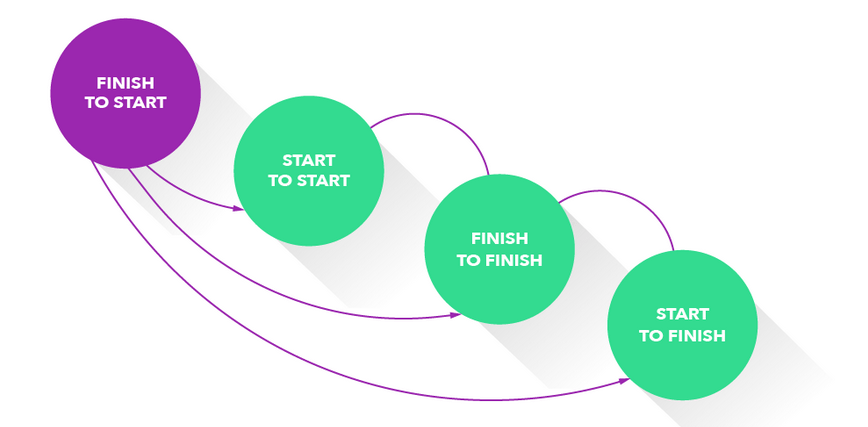In the context of EIC Horizon applications and work packages, the focal point revolves around the significance of work packages. They are crucial when creating the Horizon Project Proposal and budget, vital for project assessors’ evaluation.
What is Work Package?
Within Work Breakdown Structures, a work package, especially in Horizon application and work packages, is the smallest unit. Constructing a Work Breakdown Structure necessitates decomposing deliverables into manageable chunks, closely aligned with the concept of work packages. This alignment ensures consistency with the Gantt plan and the principles of Horizon application and work packages.
Furthermore, this deconstruction process continues until deliverables become work packages, vital within Horizon applications.
Within the context of Horizon applications and work packages, it is crucial that each package is sufficiently small to enable Project managers to accurately estimate both duration and cost. Furthermore, operating within the framework of Horizon application and work packages, project managers possess the capability to effectively schedule, estimate costs, as well as diligently monitor and maintain control over the various work packages.
Why Are Work Packages Important?
Breaking projects into work packages streamlines Work Breakdown Structure development and enhances project managers’ control over assignments. Moreover, the project becomes easier to maintain consistency with set objectives and targeted impact.
Other benefits include:
Packages help understand whether a certain set of tasks or assignments leads to a stand-alone milestone achievement.
Help plan for the identification of risks and their mitigation.
Work packages allow for simultaneous work to be done on different components of an Innovation project in parallel by multiple teams and subcontractors. Each team follows the tasks defined for the work package and completes them by the specified deadline.
Once the teams have finished their individual work packages, the entire project comes together with seamless integration. A specific person, such as a manager, supervisor, team lead, or designated team member, typically oversees work package completion.
Aggregating estimated costs from activity level to work packages enables measurement, management, and control.
We can calculate labor, material, equipment, travel costs, and indirect costs for each work package.
Overall, we aggregate individual work package costs to form the authorized project budget or baseline.

How to Prepare a Work Package?
Breaking a Work Breakdown Structure into work packages requires careful consideration. While avoiding excessive granularity, the project becomes easier to comprehend, manage, and adapt. Key factors include:
Work Packages should have a size that allows estimating time and cost.
The project manager and team should ensure that the current work package detail level furnishes ample information for subsequent tasks.
Work packages should have a size that permits assigning them to an individual or a group responsible for outcomes.
Work packages can lie at different levels in the WBS hierarchy. Project managers should not artificially force their WBS into a structure where all the work packages lie at the same level in the WBS hierarchy. This results in problems as the project progresses, like forced detail – where you could have monitored and controlled specific parts of the work at a higher level- or not enough scrutiny where you really need it.
Measuring Work Package Performance with Earned Value Management
Once approved, an innovation project within Horizon applications and work packages can assess work package performance through earned value management. This approach integrates scope, cost, and schedule measures to evaluate the project and necessitates an integrated baseline for continuous measurement.
Earned Value Measurement, as applied to Horizon applications and work packages, develops and monitors three key dimensions for each work package:
Planned Value: Planned value is the authorized budget allocated to the work to be accomplished for the work package within the realm of Horizon applications and work packages.
Earned Value: Earned value is the value of work performed expressed in terms of the approved budget assigned to the work package, considering Horizon applications and work packages.
Actual Cost: Actual cost is the total cost actually incurred and recorded in accomplishing work performed for a work package, as per Horizon applications and work packages.
After all, project managers also monitor variances from the approved baseline within the context of Horizon applications and work packages.
Our Value Added
At EuGrantMe we have a complete set of tools for checking the relevancy and self-sufficiency of work packages.
We align WPs with project plan objectives to ensure consistency. Furthermore, innovation project objectives and WPs must fully align. If uncovered goals emerge, they require resolution. Additionally, we offer guidance and audit packages for relevance, accuracy, and alignment with the startup’s vision.

At EuGrantMe, we are passionate about fostering innovation and empowering ambitious minds to flourish. Our mission revolves around providing top-notch grant writing services for the EIC Accelerator and Horizon grants in Europe, enabling our customers to unlock the full potential of their groundbreaking ideas.
Do you have a project to turn into reality?

